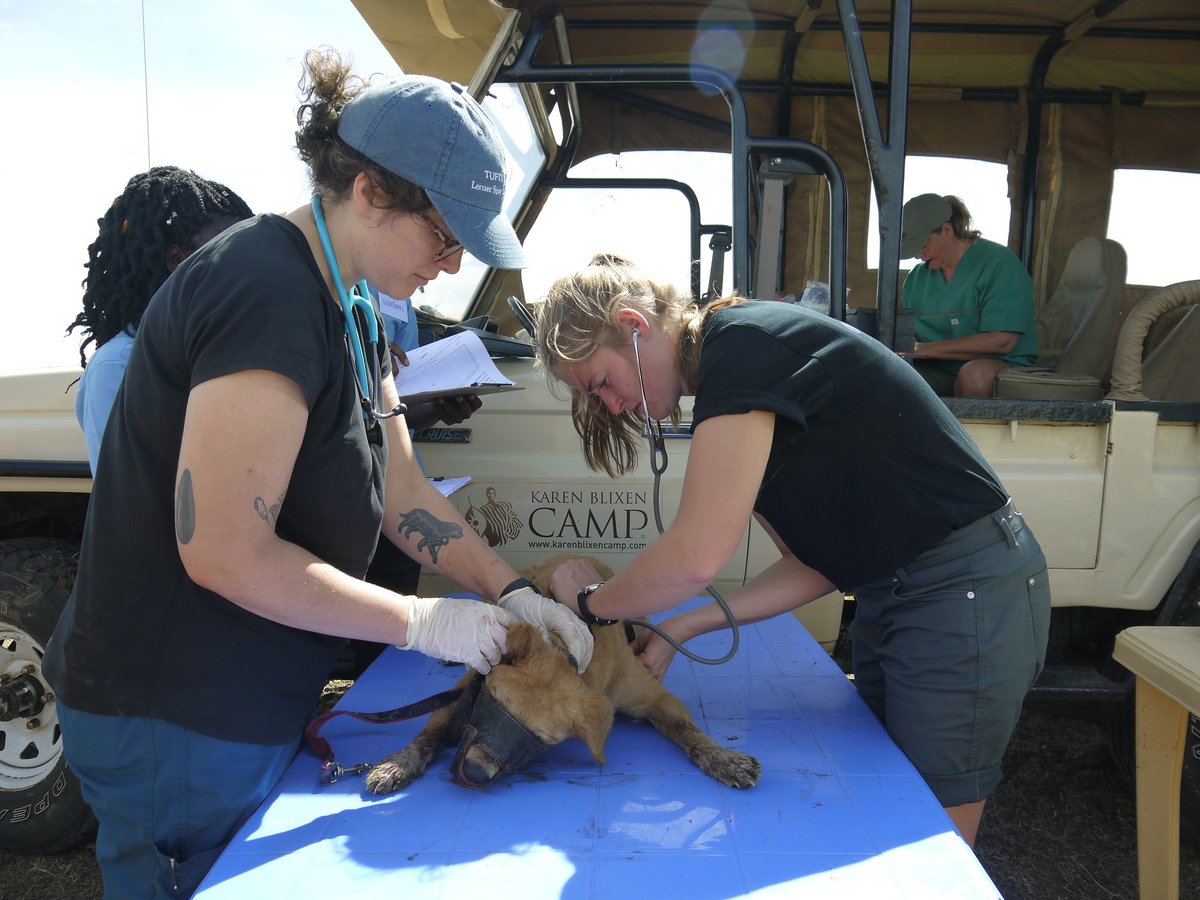2020: Gastrointestinal parasites of free-ranging dogs (canis familiaris) & a single african wild dog (lycaon pictus) from the Mara North Conservancy, Southwest Kenya

Master’s thesis:
Nikita Helene Westhausen & Nikoline Skou Christensen
Supervisors: Associate Professor Rikke Langebæk, DVM, PhD & Associate Professor Helena Mejer, University of Copenhagen, Denmark.
Submitted on July 1st 2020
The growing population of free-ranging domestic dogs (Canis familiaris) kept by the Maasai in the Mara North Conservancy, has a deleterious impact on the rich, but fragile, Mara-Serengeti ecosystem, in part through acting as a reservoir for infectious disease which may spillover into local wildlife. The consequences of potential spillover of canine gastrointestinal parasites to local wildlife are currently unknown, but the impact of parasites is increasingly recognized within conservation programs.
Fecal samples from 70 maasai dogs and one African Wild dog (Lycaon pictus) were collected in relation to the Mara North Conservancy Dog Project in 2019, and investigated for intestinal parasites.
This study found a comparably high prevalence of gastrointestinal parasites; close to 80% of the sampled dogs were infected with one or more species. Eggs of nematodes (Toxocara spp., Spirocerca lupi, Trichuris spp. and Ancylostoma spp.), cestodes (Diphyllobothriidae, Dipylidium caninum and Taeniidae ), as well as sporocyst and oocysts of protozoans (Sarcocystis spp. and Cystoisospora spp. were detected. The intensity of infection with Sarcocystis spp. appeared to be higher in juveniles than adult (p = 1.3∙10-5). Furthermore, eggs of Taeniidae, Diphyllobothriidae, Trichuroidea and Ancylostoma spp. as well as sporocysts and oocysts of Sarcocystis spp. and Cystoisospora spp., respectively, were detected in the single sample from African wild dogs.
Several of the detected parasites may infect local wildlife and people, either as final or intermediate hosts, yet the significance of such infections remain unknown, which is why this and future studies in this area are not only important from a narrow veterinary point of view, but equally important through a One Health perspective. These results emphasize the need for effective control measures such as education, proper deworming regiments and population control, in order to obtain a smaller, healthier and more sustainable population of domestic dogs to support the conservation of wildlife in the Mara-Serengeti ecosystem.